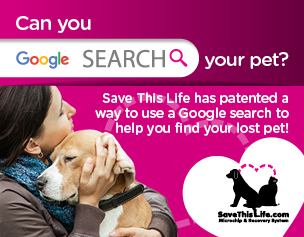Be the Hero of Pet Diabetes - Save Lives

Step Up and Lead
November is Pet Diabetes Month. A reminder to be a hero, and step up and lead. It gives us pause to think about the pivotal role that veterinarians and their staff play in bringing normalcy to the lives of diabetic pets and their parents. Sometimes the difference between life and death for these pets depends on the initial and ongoing interactions between pet parents and the veterinary staff. As we all know, being a true hero is not doing the right thing in one fleeting moment, but a long-term, dedicated commitment to doing the right thing. Let’s address two commitments. The commitment to client education and the commitment to one-stop, full servicing of the diabetic patient. Both create a win-win for the client to successfully manage diabetes, and the hospital staff to feel good about better outcomes. Only the veterinary hospital is in a position to recommend services and products that can be customized to the needs of each individual, diabetic patient.
Have Might - The First Conversation
Nothing is more important than the first conversation a veterinarian and a staff member may have with a pet parent who has just been informed their pet is diabetic. Bam! They are in a state of shock. They may have never realized that dogs and cats can even get diabetes. The successful delivery of this conversation can be very influential in the pet parent’s course of action in choosing life, abandonment or euthanasia. You can be a hero. To get the preferred result, this conversation must be fully prepared in advance, and delivered with hope, sensitivity and expertise. It is the result of conscious staff training and rehearsing. It is a commitment on the part of the hospital to combine technical know-how with sound communication strategy. It often requires the need to fully train one, two or more staff members on diabetes management, and client communications to have the “first conversation”.The first conversation should include:
- Intently listening to the concerns and fears of the pet parent, and responding appropriately with a strong dose of caring and empathy.
- Providing hope and confidence that there is a very workable, and reasonable solution. They should know there are thousands of diabetic pets, and with simple management, they and their parents can have a good quality of life and lead normal lives.
- An in-depth review with a specially trained staff member on how to manage diabetes with their particular animal including insulin approach, injection techniques, precautions, health monitoring, nutrition, and exercise.
- Given this overwhelming moment, any hand-outs or web links for informational and training resources is always a great idea.
- Establish the hospital as a partner to help make the journey easier; not only providing expert advice and service, but a bundle of preferred products to help achieve the best outcomes.
- Creating an expectation that ongoing monitoring of clinical signs, and regular wellness visits will ensure that the disease is kept in check to maintain a long and healthy life for the pet.
Have Fight - Full Dispensing Service in Your Hands
Veterinarians are in a key role to provide customized care for diabetic dog and cat patients. A large responsibility is to bring pet parents smoothly into the sphere of routine diabetes management. In addition to well-planned protocols and staff training, veterinarians should ensure that the most appropriate products are used for any given case. Their power to dispense the right bundle of products that fit specific pet needs while overseeing total quality control in their administration can make a big difference in achieving optimal outcomes. Veterinarians and their staff should feel comfortable taking control to serve the best interests of each patient.Be Vigilant - Overseeing the Options
Which is the best insulin choice for this case? Which syringe type, and at what IU concentration? Would this pet parent best be served with the new veterinary-approved insulin pen? Which diabetic diet should be recommended for optimal diabetes control? The benefits to the pet parent and the hospital of one source for diabetes management products becomes obvious. Pet parents obtain peace of mind knowing they are using the right products for the health and safety of their pets, while enjoying the convenience of “one-stop” shopping at the veterinary hospital. The staff can enjoy greater connectivity with clients on a regular basis, and ongoing monitoring of pets during return visits for their purchases. As with all good services, comes the added benefit of a more positive revenue stream. The only caution, as with all services and products, simply be sure that you are price competitive based on the value of your offerings.Know Right from Wrong - Pet Safety
The risks of referring clients to other product sources can be significant with a loss of quality and control. What happens when a human pharmacist with very little veterinary knowledge decides to substitute one form of human insulin for another because they perceive them as equal? The results can be disastrous, and lead to dys regulation of a pet’s diabetes, or worse, a hypoglycemic episode. Veterinarians can control these risks by opting for the veterinaryapproved insulin choices of Vetsulin (porcine insulin zinc suspension) approved for dogs and cats, or Prozinc (protamine zinc insulin) approved for cats. By virtue of their claims and full testing by the FDA, these should be the products of choice. However, if a human insulin product is still deemed more appropriate for a given case, veterinarians have the option of dispensing a human insulin for this individual case, and ensure correct insulin administration. There is also the risk of pet parents inadvertently using the wrong syringes - U-40 instead of U-100 or U-100 instead of U-40. In the case of using a U-40 syringe with U-100 insulin, one can get an insulin dose 2.5 times greater than recommended, dramatically increasing the chance of a hypoglycemic event. It would also be easy for clients to drift from a diabetic diet that you specifically recommended for their pet. As we know, this can adversely affect optimal diabetes management.Heroes Aren’t Born, They Are Made
Let Pet Diabetes Month be a reminder that you can be a hero by making clients aware of pet diabetes, and then when diagnosed, have a positive impact. Your heroic commitment to be fully prepared to have the “First Conversation” and provide complete services and products to clients will allow the smooth and effective incorporation of diabetes management into the lifestyle of clients and pet patients.
For more articles like this, read our digital magazine, the Animal Health Solutions!
About the Author
John Janelli, Director of Companion Animal Marketing has over 25 years of experience in animal health marketing working with a range of
pharmaceutical and vaccine programs including veterinary insulin and diabetes management. Before joining Covetrus, John had
marketing leadership roles with Kemin Companion Animal, Merck Animal Health, and Intervet/ Schering-Plough Animal Health. He holds a B.S. from
Rutgers University in Agricultural Economics, and a Master’s degree from Thunderbird International Management.


Working Here
Our team members are encouraged to be the best they can be... at Covetrus we believe we impact one another.
Learn MoreNews & Events
FDA Cautions Pet Owners Not to Feed Texas Tripe Inc. Raw Pet Food Due to Salmonella, Listeria Monocytogenes
The U.S. Food and Drug Administration is cautioning pet owners not to feed their pets any of the Texas Tripe brand raw frozen pet food listed below because several samples of Texas Tripe raw pet food have tested positive for Salmonella and/or L. mono.
Careers
Are you looking for a place to let your talents shine? At Covetrus, we help our practitioner customers better serve their patients and take pride in providing the best customer experience possible. Search our open positions to see our available opportunities.
Newsletter
Stay current with what’s going on with Covetrus, subscribe to receive our newsletter and email communications. Subscribers will receive the latest information in practice management, sales and marketing, animal health, and more.



-3-(1).png?sfvrsn=2d806d73_0)

Leave a comment